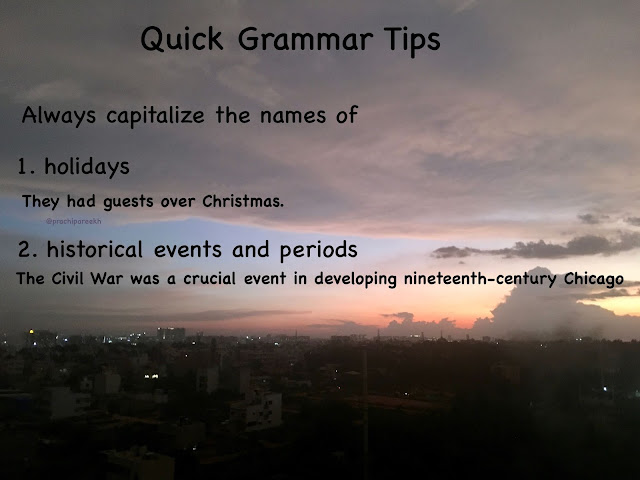Common Noun: A word used to name any person, place or thing.
e.g.
- A boy is playing.
- Bring a pot of water to a boil.
- You cannot teach an old dog new tricks.
- We play in the park.
- The red umbrella is nice.
Proper Noun: A word the we use to name common nouns.
e.g.
- I live in Bangalore.
- Sunday is the last day of the week.
- Rohan has a laptop.
- My sister's name is Pooja.
- Kaveri flows through Tamil Nadu.
Remember: A Proper noun starts with a capital letter. MINTS will help you remember.
M - Months, Day, Holidays
I - The name you call yourself
N - Name of people, places, rivers, mountains, buildings etc
T - Titles of books, movies etc.
S - Start of a sentence.









